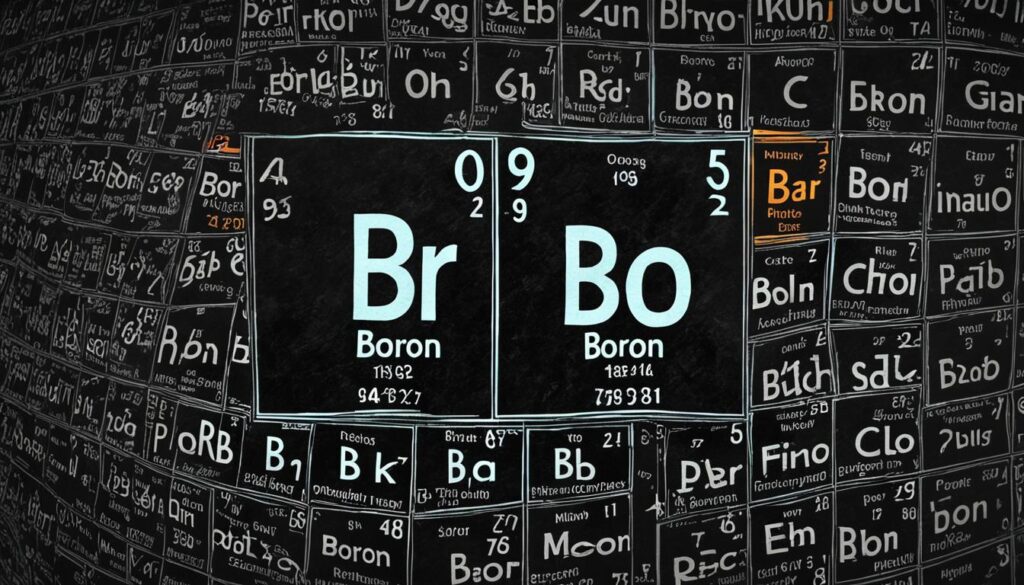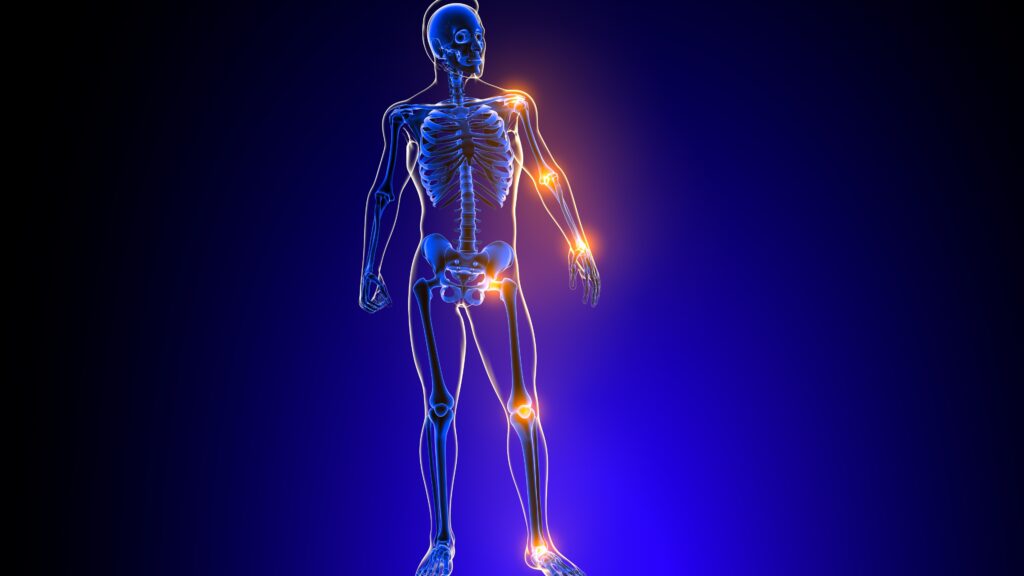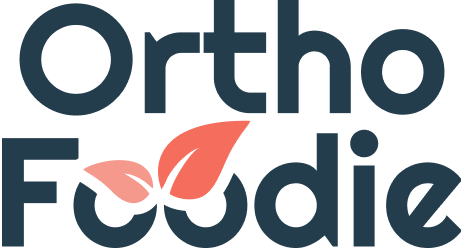As you navigate the essentials of a balanced diet, you’ve likely stumbled upon various nutrients vital for your health. Among them, boron stands out as an essential micronutrient with a myriad of benefits, significantly impacting your well-being. Though not often headlined, boron’s role in your daily life extends beyond basic nutrition; it’s a powerful ally in strengthening bones, regulating hormones, and contributing to overall health.
While many recognize the importance of vitamins and minerals such as vitamin C or calcium, boron uses stretch into realms both medicinal and practical. From aiding in mineral metabolism to positing potential improvements in osteoarthritis symptoms, boron offers a spectrum of uses that underscore its importance in our everyday lives.
Embark on a discovery journey through the world of boron – exploring how integrating this essential micronutrient into your diet can draw a blueprint for a healthier version of you.
Key Takeaways
- Boron serves as an essential micronutrient with notable benefits for mineral metabolism and hormonal regulation.
- Its uses extend into improving bone health and potential symptom relief for osteoarthritis patients.
- A naturally occurring element in plant foods, boron can be consumed through diet and supplements.
- Evidence for some of boron’s benefits, particularly in medical applications, requires further research.
- Integrating boron into your daily life can contribute to enhanced well-being and health maintenance.
- Consultation with a healthcare provider is recommended to tailor boron supplementation to individual needs.
Unveiling the Essential Micronutrient: Boron
Embarking on the quest to deepen your understanding of essential micronutrients, you may find yourself encountering a lesser-known yet vitally important element: boron. Recognized for its contribution to your health and well-being, boron’s impact spans from strengthening bones to regulating hormones. Let’s delve into the essence of this remarkable mineral and its multifaceted roles.

What is Boron?
In the midst of discussing the nutritional building blocks, boron emerges as a trace element that, while not classified as an essential nutrient by regulatory agencies, holds a pivotal place in your dietary landscape. Naturally found in the environment and in certain foods, boron supplements offer a myriad of potential health advantages, from enhancing skeletal structure to fine-tuning hormonal functions.
Historical Insights and Modern Understanding
Historically, the significance of boron came to light as researchers observed how dietary intake influenced various aspects of human health, primarily bone robustness and endocrine regulation. Adding to these revelations are findings on how boron interacts with minerals like calcium and magnesium, integral to developing and sustaining a sturdy skeletal frame. By exploring the boron properties and their systemic health effects, contemporary science has unveiled the potential that a boron supplement carries, especially noted in postmenopausal women and individuals with mineral metabolism sensitivities.
The journey of boron from an obscure element to a notable player in health science continues to unfold, as studies corroborate its role in aiding mineral absorption and boosting hormonal balance. While the FDA has not sanctioned boron as a regulated dietary supplement, the body of research grants it an informal badge of honor as a valuable contributor to your diet. Each new discovery reaffirms the intricate ways boron properties integrate into the matrix of human biology.
Anatomy of Boron: Recognizing its Role and Functions
When pondering the elements critical to human health, the boron periodic table entry might not immediately spring to mind. Yet, this unsung hero plays a pivotal role in your body’s physiological functions. Boron is situated uniquely within the fabric of the periodic table and possesses a set of boron properties that are not just intriguing but are fundamentally essential to various biological and industrial applications.

Boron’s Position in the Periodic Table
As you explore the p-block of the periodic table, you’ll encounter boron seated prominently with an atomic number of 5. It’s classified as a metalloid, embodying characteristics that lie between metals and non-metals. This unique status as a trace mineral reveals the essential functions boron performs, contributing to health and vitality.
Physical and Chemical Properties of Boron
Boron makes its mark with a high melting point and, in some forms, exhibits incredible hardness, comparable to the toughest materials known. Yet, its role extends beyond mere strength. The very essence of boron is reflected in its chemical versatility and biological significance. Let’s consider a snapshot of its properties in a comparative table:
| Property | Description |
|---|---|
| Atomic Number | 5 |
| Classification | Metalloid |
| Melting Point | 2200°C (4000°F) |
| Hardness | Comparable to diamond in some forms |
| Biological Role | Essential in bone maintenance and hormone balance |
Boron’s biochemical efficacy is further evidenced through its demonstrable impact on bone health, facilitating mineral absorption essential for robust skeletal systems. Its role in animal nutrition models provides insights into the depth of boron properties, integral for understanding how this element supports your health from its unique position on the boron periodic table, right into the cells of your body.
Nutritional Significance of Boron in Your Diet
Embedding boron in diet practices can be transformative for major mineral metabolism, playing a crucial role in optimizing your overall health. Boron, often overshadowed by its nutrient counterparts, is gradually emerging as a significant player in the nutrient symphony that orchestrates your body’s harmonious functioning. Understanding its impact on mineral metabolism and hormonal balance, you’ll grasp why incorporating boron is much more than a dietary afterthought—it’s a conscious step towards enhanced wellbeing.
How Boron Influences Major Mineral Metabolism
In the intricate dance of minerals within your body, boron acts as a choreographer, facilitating the absorption and metabolism of crucial elements such as calcium, magnesium, and phosphorus. These are not just cornerstones for bone strength; they are omnipresent in a cascade of biological processes essential for day-to-day vitality. The addition of boron to your diet has the potential to positively twist the dynamics of how these major minerals are managed internally, alluding to the intricacies of boron health effects that extend far beyond bone integrity.
The Correlation Between Boron Intake and Hormonal Balance
Your hormonal orchestra is fine-tuned by various conductors, among which boron plays a discreet yet impactful role. Its apparent influence on the metabolism of sex steroids, such as estrogen and testosterone, particularly stands out in its ability to maintain hormonal balance. Clinical observations suggest that boron supplementation may be a promising ally for postmenopausal women grappling with the challenges of hormonal shifts. This nutrient-mineral balance harmony manifests in you navigating a life with more equilibrium and potentially fewer health disturbances.
Research underscores the subtle power of boron in maintaining equilibrium in the body’s hormonal symphony, especially during life stages when the scale is prone to tipping.
Boron Uses: From Industry to Medicine
The multifaceted nature of boron reveals its expansive roles that remarkably extend from your health into the wide spectrum of industrial and medical applications. Be it accelerating the healing of wounds or standing strong as a reliable component in advanced technologies, boron has rooted itself as an indispensable element in many sectors. Let’s take a closer look at the impressive array of boron uses in medical treatments and industrial applications, shining a light on its notable healing properties.

Boron in Medical Treatments and Healing
When it comes to medical treatments, boron’s reputation as a healing agent is gaining traction. Boron compounds, especially boric acid, have been found to accelerate wound healing, making them invaluable in the treatment of deep tissue wounds. Findings from various studies, including those examining alveolar bone modeling, point towards boron-infused compounds as key players in tissue regeneration. These healing properties of boron are not just limited to bone health; they also extend to aiding the body’s natural repair mechanisms, giving it a special place in medical treatments.
Industrial Applications of Boron
In the realm of industrial applications, boron’s resilience and versatility are just as prominent. Its ability to increase hardness makes it ideal for the production of glass and ceramics, where durability is of the essence. Furthermore, boron finds its application in the electronics industry as a semiconductor, where precision and reliability are paramount. Its heat resistance and unique chemical properties ensure that boron is a key component in creating materials and products that meet the rigorous demands of today’s technology.
| Industrial Usage | Function | Benefits |
|---|---|---|
| Glass Production | Increases durability and heat resistance | Improved product longevity and performance |
| Ceramic Manufacturing | Contributes to hardness and coloration | Stronger, more aesthetic ceramic products |
| Semiconductor | Enhances electrical conductivity | Key in developing advanced electronic devices |
| Energy Storage | Used in battery technologies | Eco-friendly energy solutions with higher efficiency |
By exploring the depth and breadth of boron uses, you’re not only discovering a nutrient that supports your own bodily functions but also unveiling a substance that plays a critical role in innovations that shape our modern world. With every application, from life-saving medical treatments to industry-shaping innovations, boron truly exhibits its capacity as a healing powerhouse and an industrial staple.
Understanding Boron Deficiency and Its Implications
Navigating the complexities of nutrient intake can often overlook minute but crucial elements, such as boron, an unsung nutrient with vast implications. Here, you will gain insight into the potential health effects of boron deficiency, a condition that, while infrequent, warrants attention for its role in maintaining bodily functions.
Though manifestations of boron deficiency are yet to be fully characterized, signs point to its importance in the absorption and metabolism of major minerals and the regulation of vital hormones. Without adequate boron, you might experience a detriment to bone strength and shifts in hormonal equilibria—an invisible imbalance with tangible consequences.

Boron’s interplay with essential minerals like calcium and magnesium underscores its role in preventing nutrient deficiency and safeguarding bone health. Its influence extends to facilitating correct hormonal function, which means that insufficient boron levels may potentially disrupt this delicate balance.
| Potential Symptom | Possible Impact of Boron Deficiency |
|---|---|
| Bone Composition Alterations | Diminished bone density and increased fracture risk |
| Hormonal Dysregulation | Irregularities in sex hormone levels, affecting overall wellness |
| Mineral Absorption Inefficiency | Defective use of calcium and magnesium, key for bone and muscle function |
Given the elusive nature of boron deficiency, it remains a challenge to assess and recognize. The lack of a universally acknowledged set of symptoms or a standardized diagnostic test adds layers of complexity to understanding the health effects of insufficient boron. However, the continued exploration into boron’s essential role in your health could unveil indicators to accurately detect and address this deficiency.
As boron is intricately linked to various pivotal health areas, maintaining sufficient levels is imperative for a balanced bodily function, making it an essential yet often underrated nutrient.
While the journey to fully unlock the mysteries of boron’s role in the body forges ahead, you can take proactive steps in ensuring adequate intake to potentially counteract the silent but significant impacts of boron deficiency.
The Therapeutic Advantages of Boron Supplementation
Boron supplementation is gaining recognition for its therapeutic advantages in maintaining and improving bone health and joint functions. As we delve into the scientific research, we discover the scope of benefits a simple boron supplement might hold for those seeking to enhance their bone density and optimize their joint health.
Improvements in Bone Density and Joint Health
Studies have been pointing towards the positive impact of boron on bone density. By facilitating the absorption of significant minerals such as calcium and magnesium, boron plays a pivotal role in strengthening the skeletal system. The differentiation of human bone marrow stromal cells is promoted by boron, a process which is fundamental for bone growth and repair. For those concerned with maintaining healthy bones, supplementing with boron could be a step in the right direction.

Boron’s capacity to aid in joint health is another aspect that cannot be overlooked. Adequate boron levels help maintain the structural integrity of the joints, potentially warding off discomfort and immobility that can result from joint-related conditions.
Alleviating Symptoms of Arthritis with Boron
Arthritis symptoms can be debilitating, impacting an individual’s quality of life significantly. Emerging evidence suggests that boron supplementation can offer some relief. It has been associated with reducing markers of inflammation, such as C-reactive protein, which is often elevated in conditions like osteoarthritis. People who have incorporated boron supplements have reported improvements in knee pain, shedding light on boron’s potential role as a complementary approach to managing arthritis symptoms.
Although more research is necessary to fully ascertain the extent of boron’s benefits for arthritis, these preliminary findings amplify the potential role of boron as a beneficial supplement in therapeutic settings.
Considering the promising outcomes of initial studies, boron supplements warrant further investigation for their role in enhancing bone density and alleviating joint discomfort, including arthritis symptoms. They could be an impactful addition to a health-focused supplement regimen.
Exploring Boron’s Effects on Athletic Performance
As you delve into the realm of sports supplementation, the question of boron’s role in enhancing athletic performance has sparked considerable interest. This trace mineral, commonly recognized for its influence on bone health, has been the center of discussions regarding its utility in sports nutrition. Careful scrutiny into existing research sheds light on the potential of boron in complementing your regimen for sporting excellence.

The speculation around boron athletic performance enhancement is tethered to its pivotal function in mineral metabolism and hormonal modulation. Boron’s propensity to facilitate the management of essential nutrients within the body is hypothesized to culminate in better athletic outcomes. Moreover, its engagement with sex hormone levels suggests a theoretical edge in physical conditioning and recovery for athletes.
Yet, despite the promising narrative built around boron supplementation, empirical evidence remains inconclusive. A systematic review assessing the effects of boron on athletic performance surfaced with findings that call for a reflective pause; the introduction of boron supplements over a seven-week period did not yield measurable improvements in athletic prowess. This suggests that the journey to unravelling the true impact of boron within the sphere of sports supplementation is far from over.
While the hypothesis that boron could be a game-changer in athletic performance is enticing, it is evident that the scientific community stands at the precipice of discovery, with more rigorous research required to solidify these claims.
Reflecting on the current landscape, if you’re eyeing boron as a potential supplement to boost your athletic edge, it’s prudent to approach this option with discernment. Aligning with evidence-based practices, ensuring that your supplementation strategy is informed by the latest and most reliable research is a sound way to pursue your goals in sports and exercise.
What can be stated with certainty is the clarion call for continued investigation. The quest to decode the comprehensive effects of boron in sporting contexts is emblematic of the broader pursuit of optimizing sports nutrition. Only through unwavering inquisition and methodical study can a verdict be rendered on boron’s place in the athlete’s toolkit.
- Theorized benefits of boron include improved mineral metabolism and hormone regulation.
- Current data does not conclusively support boron supplementation for enhanced sports performance.
- Further research is essential to fully understand boron’s efficacy for athletes.
In conclusion, while the allure of boron as a complement to athletic endeavors remains, it is your informed choices, backed by steadfast research, that will determine the actual value of boron in sports supplementation. Until then, integrating boron into your diet and supplementation regime should be done thoughtfully, under professional guidance, and with an eye on future discoveries.
Natural Sources of Boron: A Guide to Boron-Rich Foods
Unlocking the treasures of nature, you’ll find that boron is not a distant mineral locked away in the Earth’s crust, but rather it’s generously present in the natural sources of boron that are available in your daily diet. As you embark on a journey towards optimal health, understanding and embracing boron-rich foods can pave the way to fulfilling your body’s micronutrient needs.

Embracing a diet replete with boron-rich foods ensures that your body harnesses the full spectrum of benefits offered by this essential trace mineral. Vegetarians often naturally consume higher levels of boron due to the abundance of this element in a plant-based diet. Whether you’re exploring vegetarianism or simply seeking to boost your micronutrient intake, adding boron-rich foods can be a transformative step towards enhancing your health.
Common Boron-Rich Foods you are likely to find on your plate include:
- Avocados: Known for their heart-healthy fats and versatile use in dishes.
- Red Apples: A crunchy delight that pairs well with your favorite peanut butter.
- Peanuts: Munch away on these legumes as a snack or in your favorite dishes.
- Raisins: These dried grapes can be a sweet addition to your oatmeal or salads.
- Prunes: Packed with fiber, they aid digestion and are boron boosters.
- Pecans: Add a nutty crunch to your desserts or enjoy them on their own.
- Potatoes: A comfort food staple that can be roasted, mashed, or baked.
- Peaches: Perfect for a sweet snack or sliced in your morning cereal.
These natural sources of boron are not only nutrient-dense but also add a burst of flavor and texture to your daily meals, proving that a healthy diet doesn’t have to compromise on taste.
| Food | Boron Content | Health Benefit |
|---|---|---|
| Avocados | High | Supports cell membrane structure |
| Red Apples | Moderate | Antioxidant properties |
| Peanuts | Moderate | Contributes to brain health |
| Raisins | Moderate | Promotes heart health |
| Prunes | Moderate to High | Enhances bone density |
| Pecans | Moderate | Rich in healthy fats |
| Potatoes | Moderate | Source of complex carbohydrates |
| Peaches | Moderate | Full of vitamins and minerals |
Inclusion of these boron-laden ingredients will not only enrich your meals but also fortify your diet with a nutrient that many overlook. Your path to wellbeing is enhanced when you consciously choose boron-rich foods, savoring each bite with the knowledge that you are supplying your body with one of nature’s bountiful elements.
Investigating the Possible Side Effects and Safety of Boron
While the benefits of boron have been widely discussed, it’s equally important to shed light on the safety and potential risks associated with high boron intake. As with any supplement, understanding the side effects and maintaining an awareness of the appropriate levels of consumption is crucial for your health. This section highlights the need for responsible boron consumption, addressing the concerns of potential toxicity and interactions with other conditions and substances.
Potential Risks with High Boron Intake
Even beneficial micronutrients like boron can lead to adverse effects when consumed in excessive amounts. Awareness of boron side effects is vital to prevent the onset of symptoms associated with high boron intake risks. Raised levels may result in nausea, vomiting, indigestion, or headaches. In more extreme cases, high boron exposure may cause skin flushing and more severe health issues. This underscores the importance of adhering to recommended dosages for maintaining boron safety.
Interactions and Contraindications of Boron Supplementation
Your health history and current medical conditions must be considered when adding boron to your regimen. Certain conditions, particularly those that are hormone-sensitive, may be influenced by boron since it has the potential to affect hormone production. Individuals with kidney disease should exercise caution, as the kidneys are primarily responsible for eliminating boron from your body. For pregnant or breastfeeding women, discussions with a healthcare provider are imperative to ensure the safety of both mother and child. Navigate the decision of whether boron supplementation is right for you with professional guidance, ensuring any treatment plan accounts for your unique health landscape and any potential boron safety concerns.

